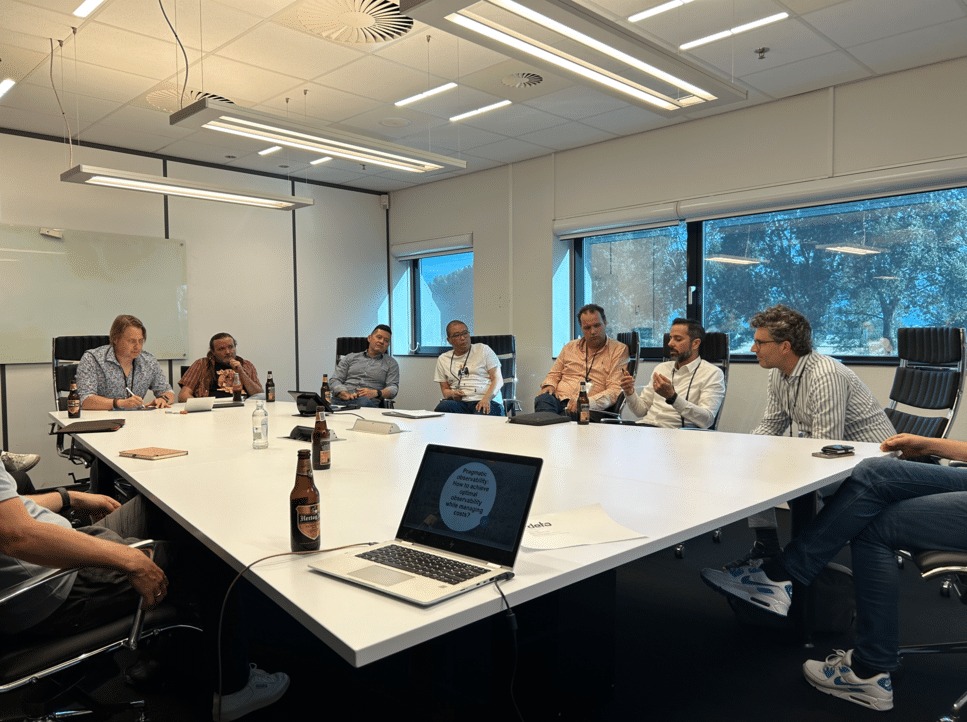As you can imagine, by nature of being a talent sourcing company, we speak with a lot of people about skills; whether it’s to businesses about the skills they are looking for, or to candidates about the skills they possess, a lot of our conversations tend to be focused around this topic.
As society continues to change and develop as a result of the constant advancements in digital and technology, the skills requirements from businesses are also changing. Meaning that companies should be more aware than ever about the importance of preparing their employees for the new world of work.
Who is responsible?
This begs the question then, whose responsibility is it to upskill the workforce of the future? Should it be in the interest of the employees or the employers? Well it should be equally as important to both. Businesses need to recognise the importance of upskilling by providing their employees with opportunities to learn relevant and new skills. And employees need to remain proactive in what the future of their Salesforce role might look like.
Tips for candidates
1. Mentoring
Not only can you learn a lot from someone who is already where you want to be, you can also avoid a lot of mistakes. There are a number of Trailblazer’s out there who are more than happy to give advice to their peers. Talk someone who is where you want to be and ask them about how they got to where they are and what they learned along the way.
You will gain plenty of professional insight talking to somebody with more experience. You can also clarify which skills you still need to develop. As a start you can find some great advice from the Salesforce leaders and MVPs that we speak with in our #SalesforceQA series.
2. Networking
The Salesforce community is one of the most active out there. There are a number of meetups, events and online communities that provide the opportunity to talk to and learn from others working in the ecosystem. Speak to people from a wide range of ages and backgrounds.
In doing this, you will broaden your mind set, your circle of connections and your interpersonal skills. Talking to people in different Salesforce role will also teach you what life might be like outside your current role.
3. Learning
An obvious one, and something we don’t stop talking about but it’s key to stay on top of your career path and what it is that you might need in order to get there. There are so many different places for you to upskill – from official certifications to blogs from your fellow Salesforce professionals. If there’s one thing that will play a part in your upskilling journey, it’s the desire to keep learning.
Tips for businesses
1. On the job training
This type of training and upskilling allows employees to learn the skills they need in real circumstances faced by the business. Mentorship programmes within the business are a great way to achieve this.
Jeff Steinke, Co-Founder of ThirdEye comments, “A huge part of my advantage in getting my TA certification so young was the fact that I had taken on a lot of roles.” Jeff was on of the youngest people ever to achieve the Technical Architect certification and believes a lot of this was due to the experience his employer gave him.
“I was given the opportunity to experience various different aspects of the business – spent a year with developers, a year working with the data team and a year just building different systems.”
Providing your employees with the opportunity to work with more senior members of staff and learn from them is a great way to upskill staff.
2. Courses
Salesforce professionals benefit from a huge range of courses, training materials and certifications. Whether you’re looking to upskill junior staff members or more senior employees, the upskilling opportunities are endless.
Giving staff the time to learn, is key as this then enables them to advance their skills and bring them back to the company to implement in their teams. This helps to grow the department’s skill set.
3. Hiring
This might sound obvious, but hiring the right people is key. If you want to upskill your employees you have to be sure that you’re hiring people who want to learn. Employees with a curious nature and willingness to learn will make the process of upskilling much more successful.
Look for people who have a track record of picking up new skills on the job, and who are self-motivated. These types of people are also more likely to learn new skills using their own initiative.
Whether you’re a candidate looking for your next Salesforce role or a promotion at your current company. Or you’re an employer who’s looking to get the best out of your Salesforce staff. Upskilling is essential in today’s fast-moving, digital and highly competitive markets.
For a conversation about your Salesforce career, or to hear about our latest roles, get in touch with our specialist Salesforce consultants today!




